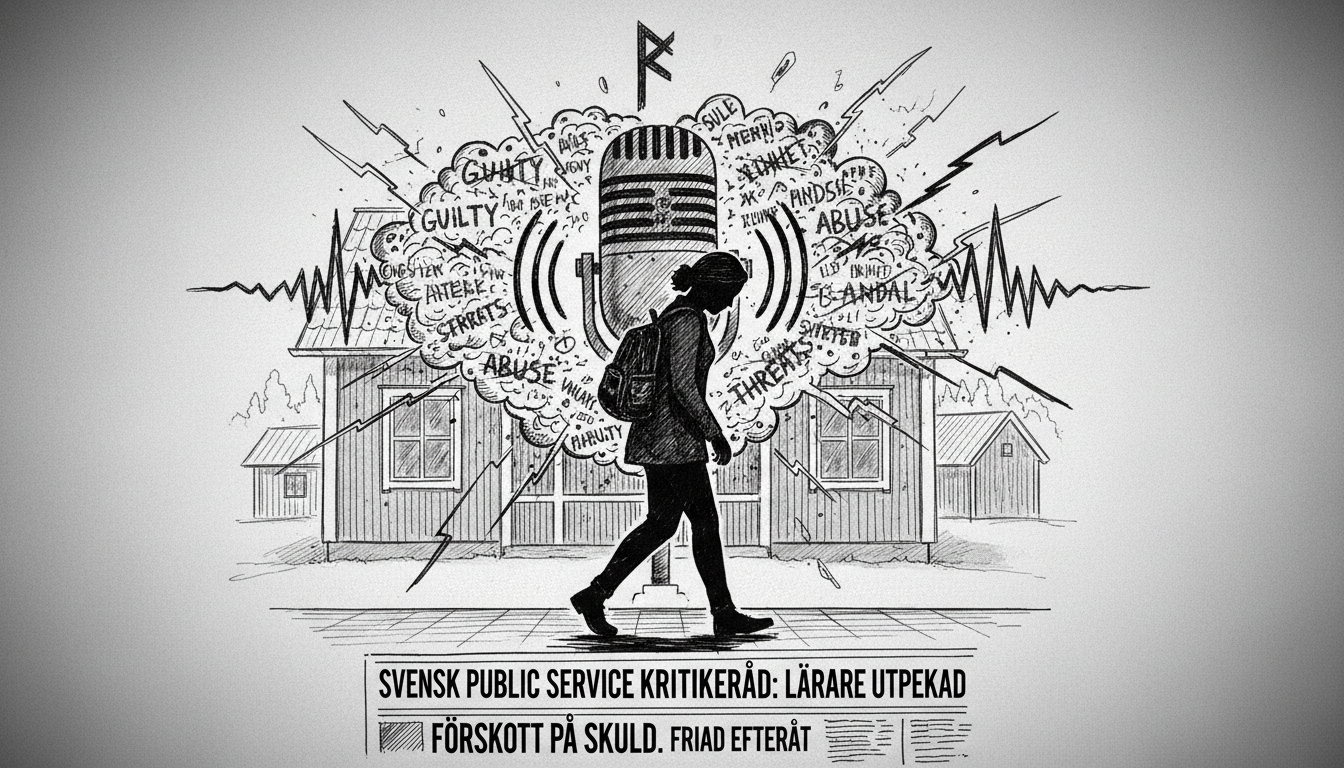Swedish Public Broadcaster Criticized for Teacher Identification
Sweden's public broadcaster faces criticism for identifying a preschool teacher in abuse reports before conviction. The teacher received threats and harassment despite all investigations eventually closing. Media ethics experts question the one-sided reporting that presumed guilt.

Sweden's public broadcaster faces criticism for identifying a preschool teacher in sexual abuse reports. The teacher could be recognized by staff and parents at the named preschool despite not being convicted.
Two news segments and an online article in December 2024 reported on abuse suspicions at a preschool in a specific municipality. The reporting appeared one-sided and suggested the teacher's guilt before any court judgment.
Parents, the municipal board chairman, and the accused teacher all provided statements. The teacher denied the allegations using a voice distorter during interviews.
When the reports aired, two preliminary investigations had closed. New accusations from additional children later emerged, reopening the case.
A studio discussion followed one broadcast segment. Sweden's Children's Ombudsman criticized the municipality's handling and questioned how child interviews were conducted. The reporter explained the municipality's reasons for not informing parents.
The identified teacher claims that merely describing him as a male preschool worker in that municipality amounted to identification. The accusations spread widely among parents, staff, and beyond the workplace.
Hundreds of people could identify him. He received serious threats and harassment from one parent featured in the reports. All investigations by both police and employer have now closed with no remaining suspicions.
The broadcaster violated ethical journalism standards by presenting unproven allegations as fact. This case shows the real-world consequences when media organizations fail to protect identities during ongoing investigations.